SUMMARY
PREVALENCE: Rare
ACTIVE PERIOD: Nocturnal
KEY ID FEATURES: Grey Green shell when mature with knobs on front center and nodules on back of shell
BEHAVIOR: Actively hunt at night in clear fast flowing streams around deep pools
SIZE: Large/Medium - 40+cm
IUCN: EN - Endangered
QUICK ASSESSMENT 0-10
GALLERY
IMPORTANT: Most turtle species in Hong Kong are poached for the Chinese Medicine, food and pet trades. You should never reveal location of encountered turtles on social media to reduce the ability of poachers to effectively hunt these extremely vunerable animals.
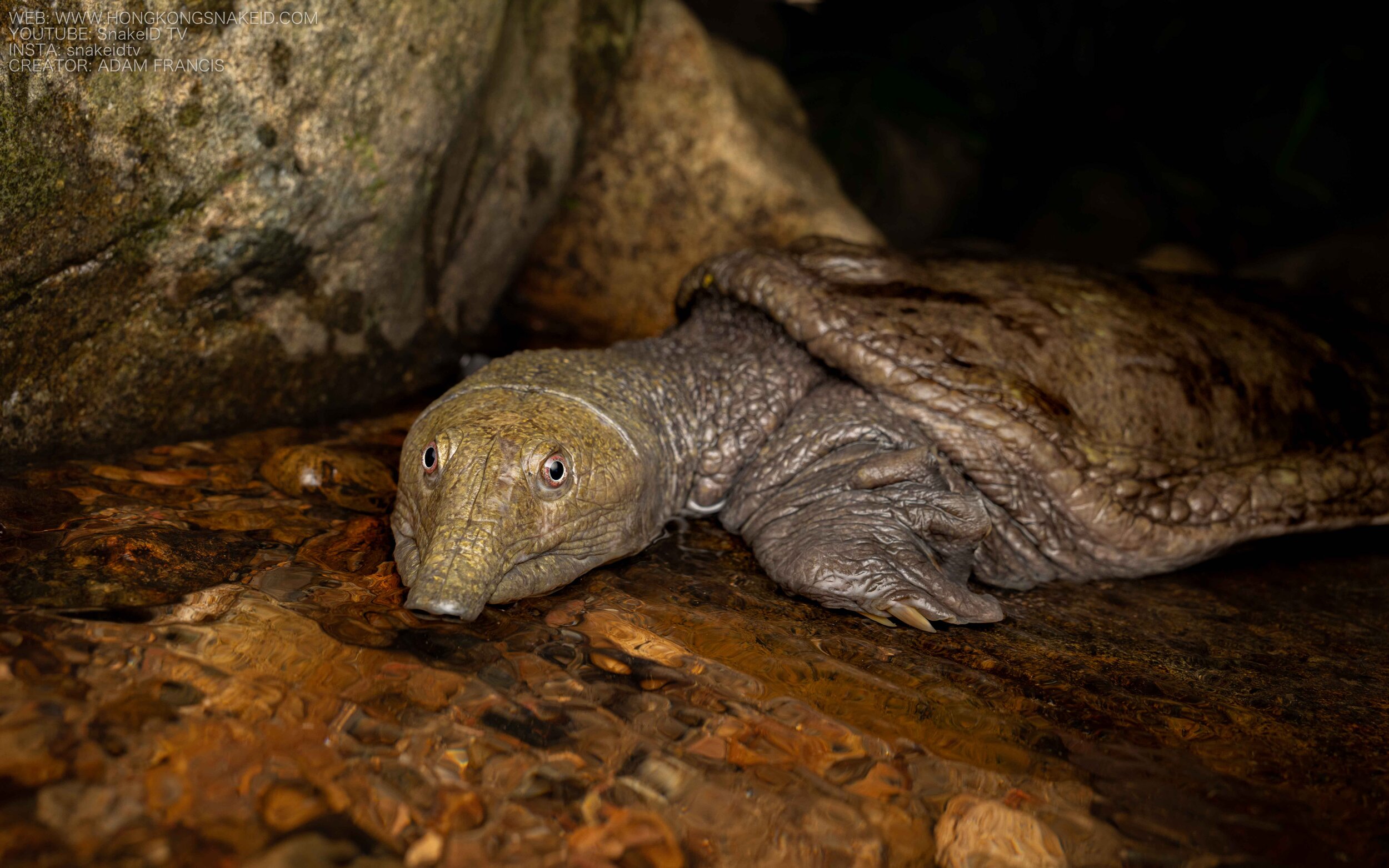
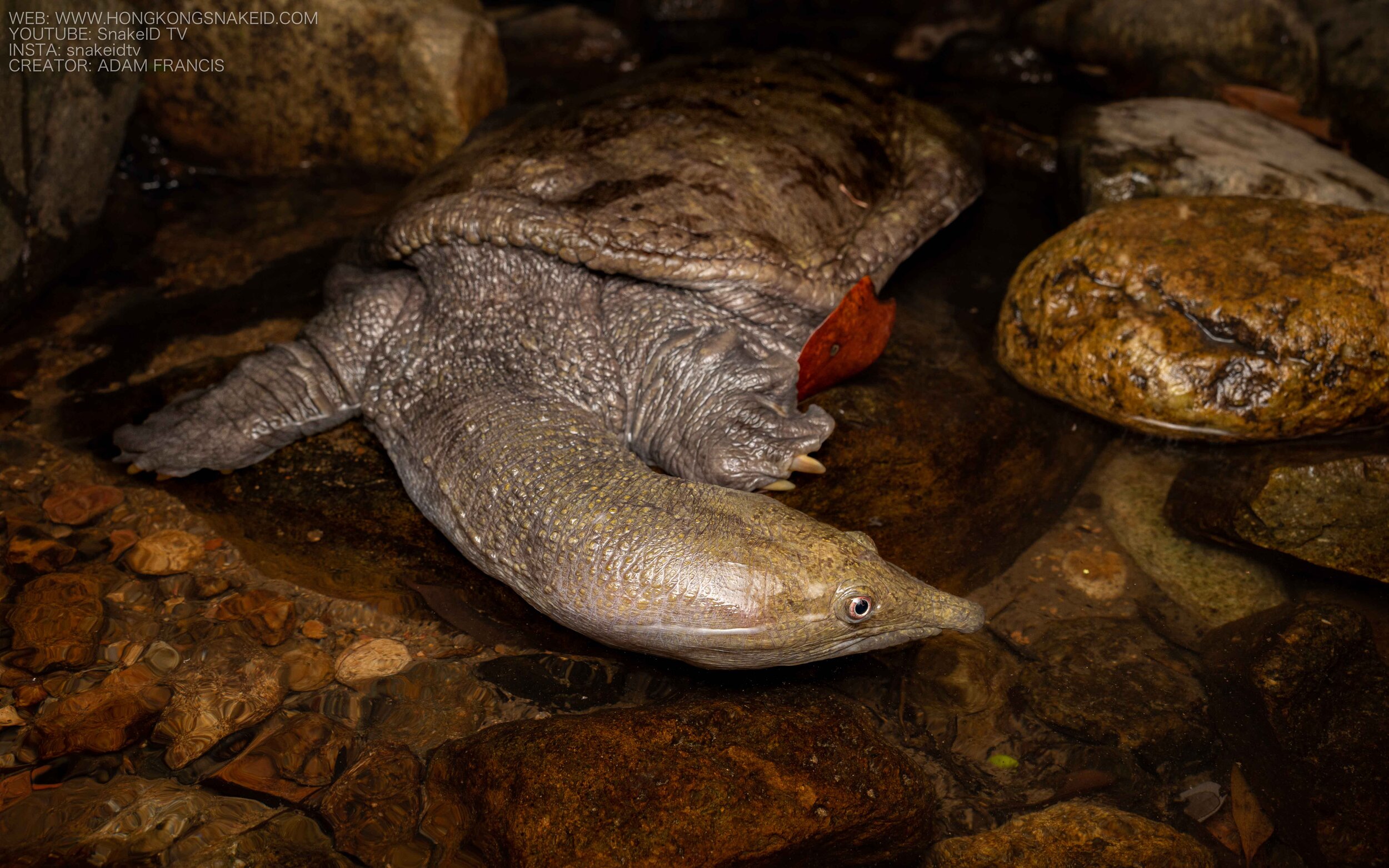
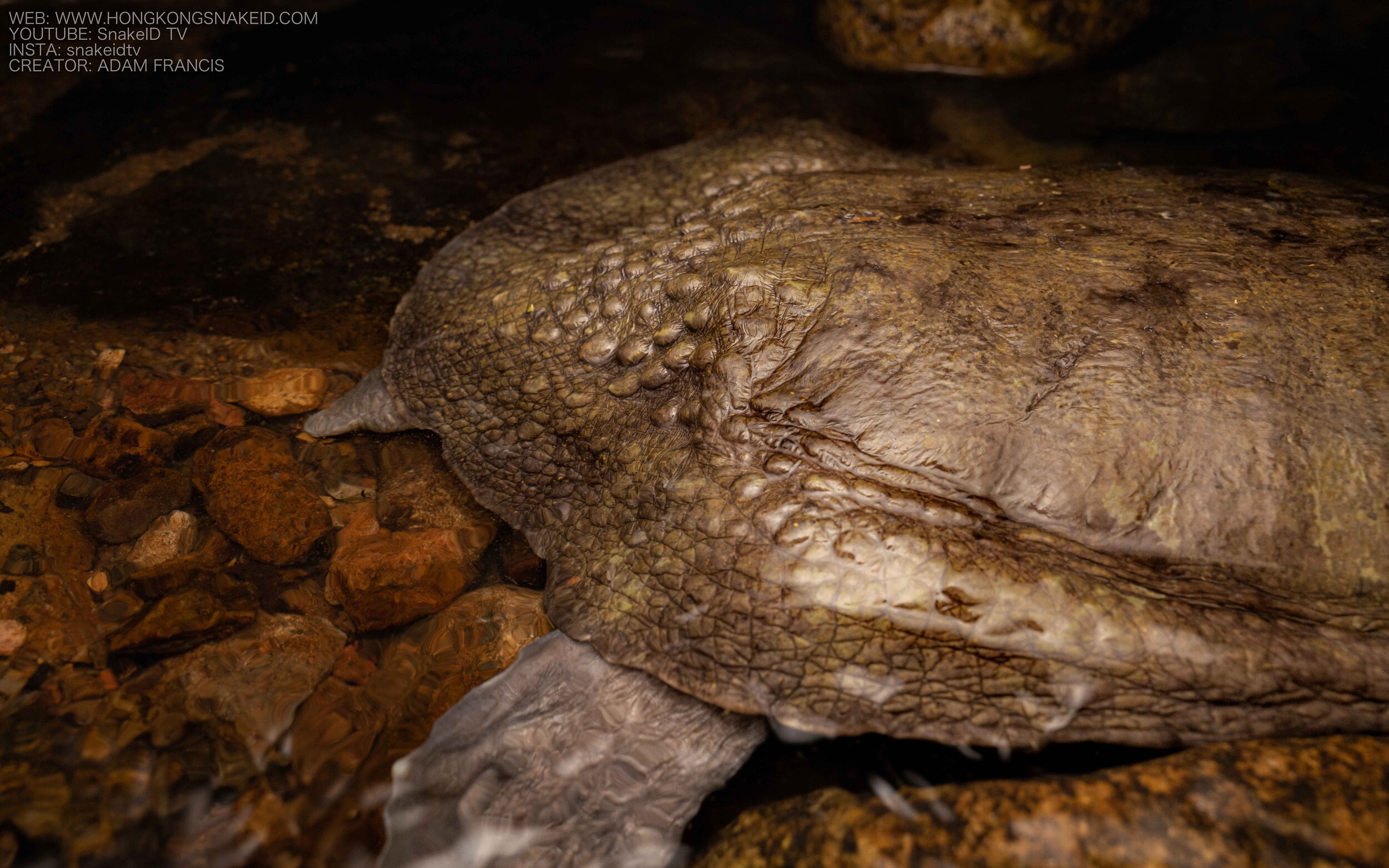
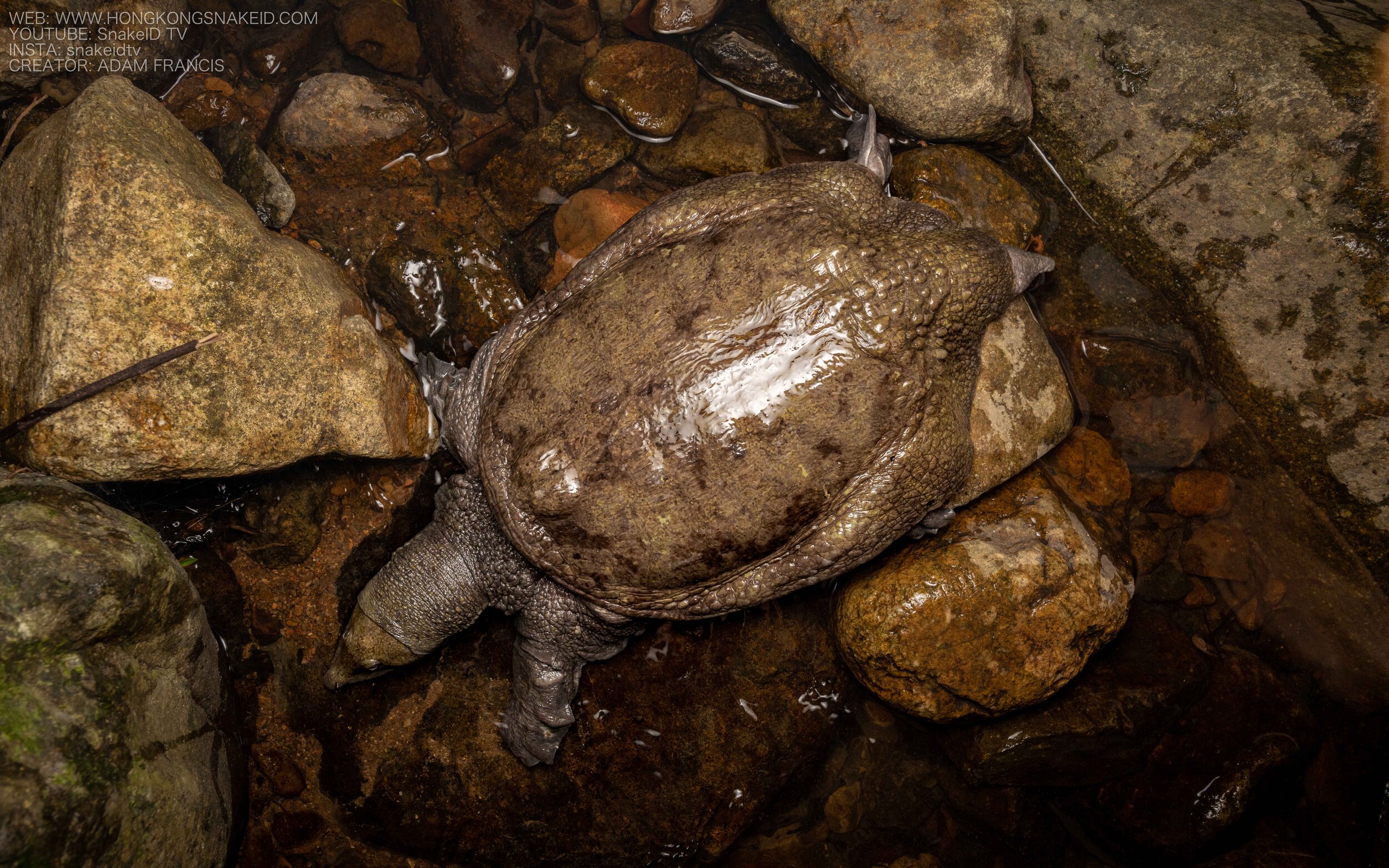
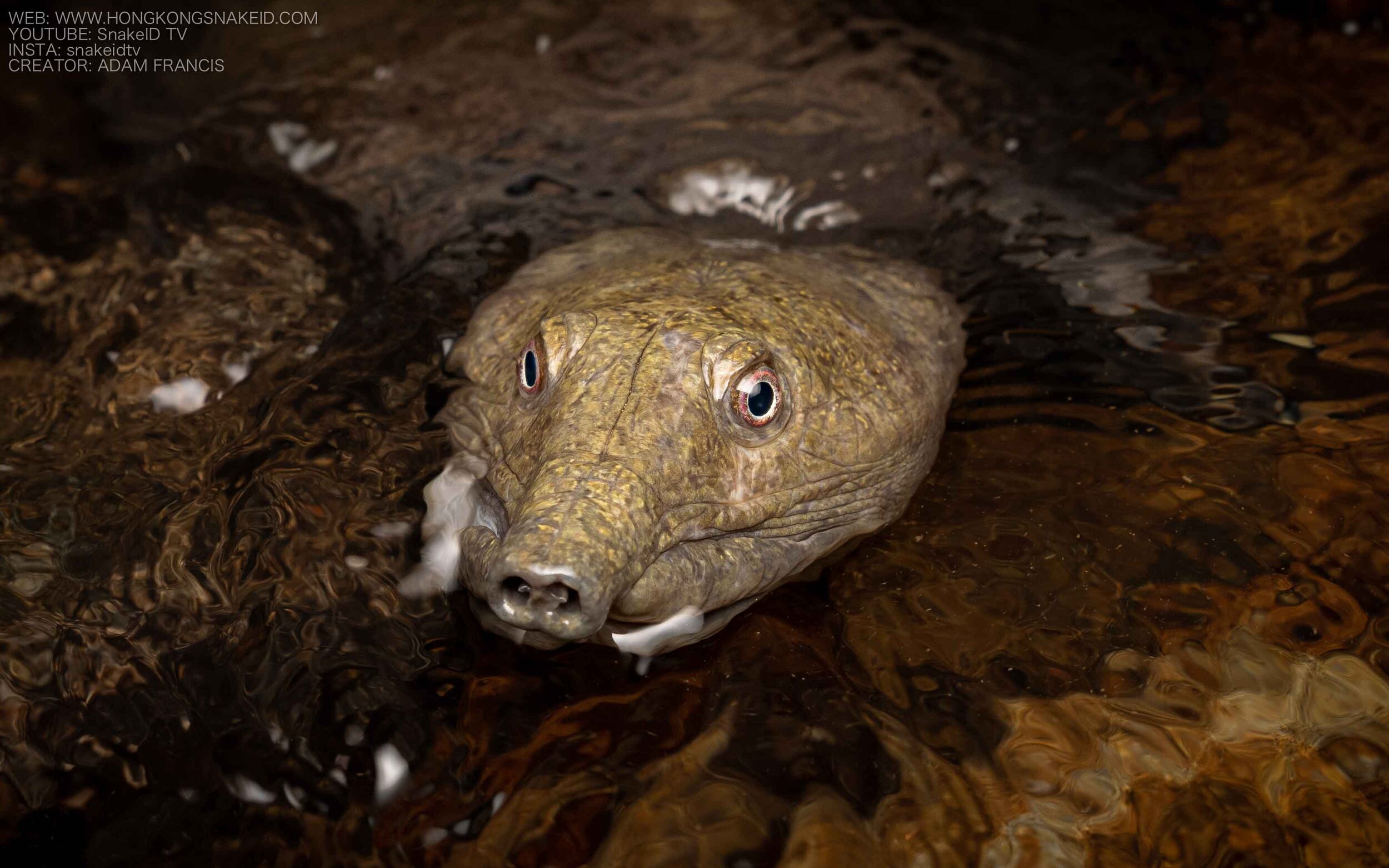
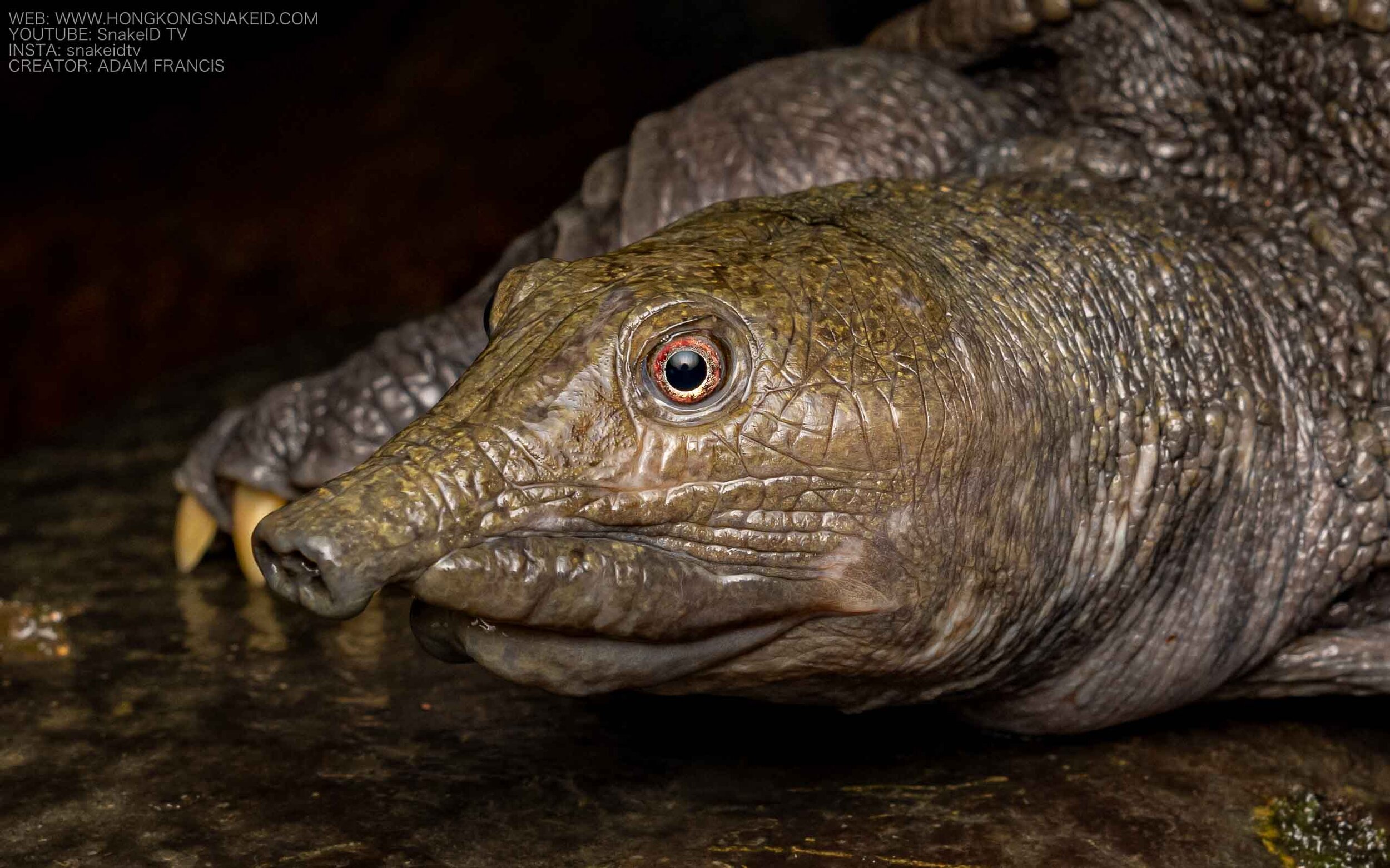
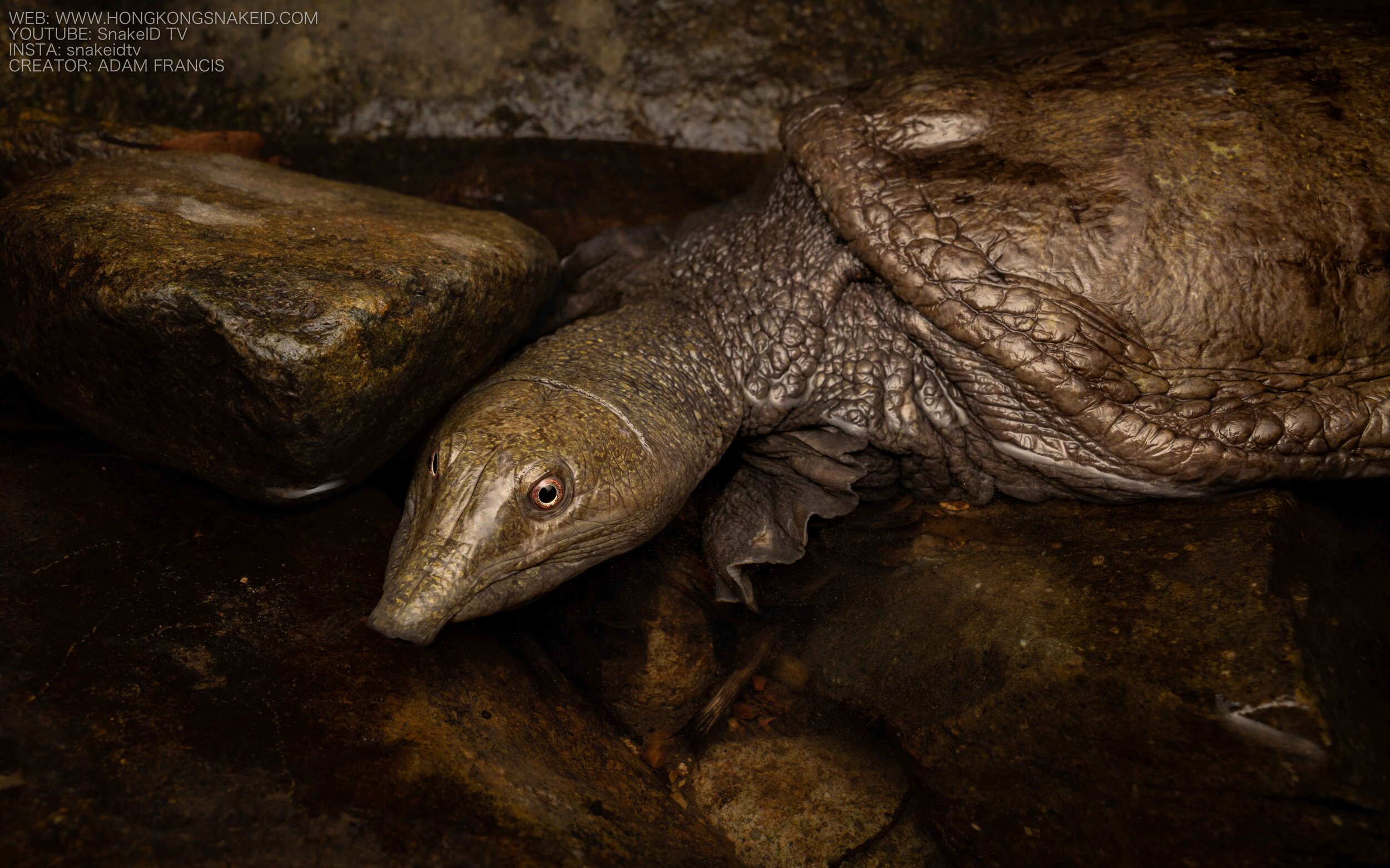
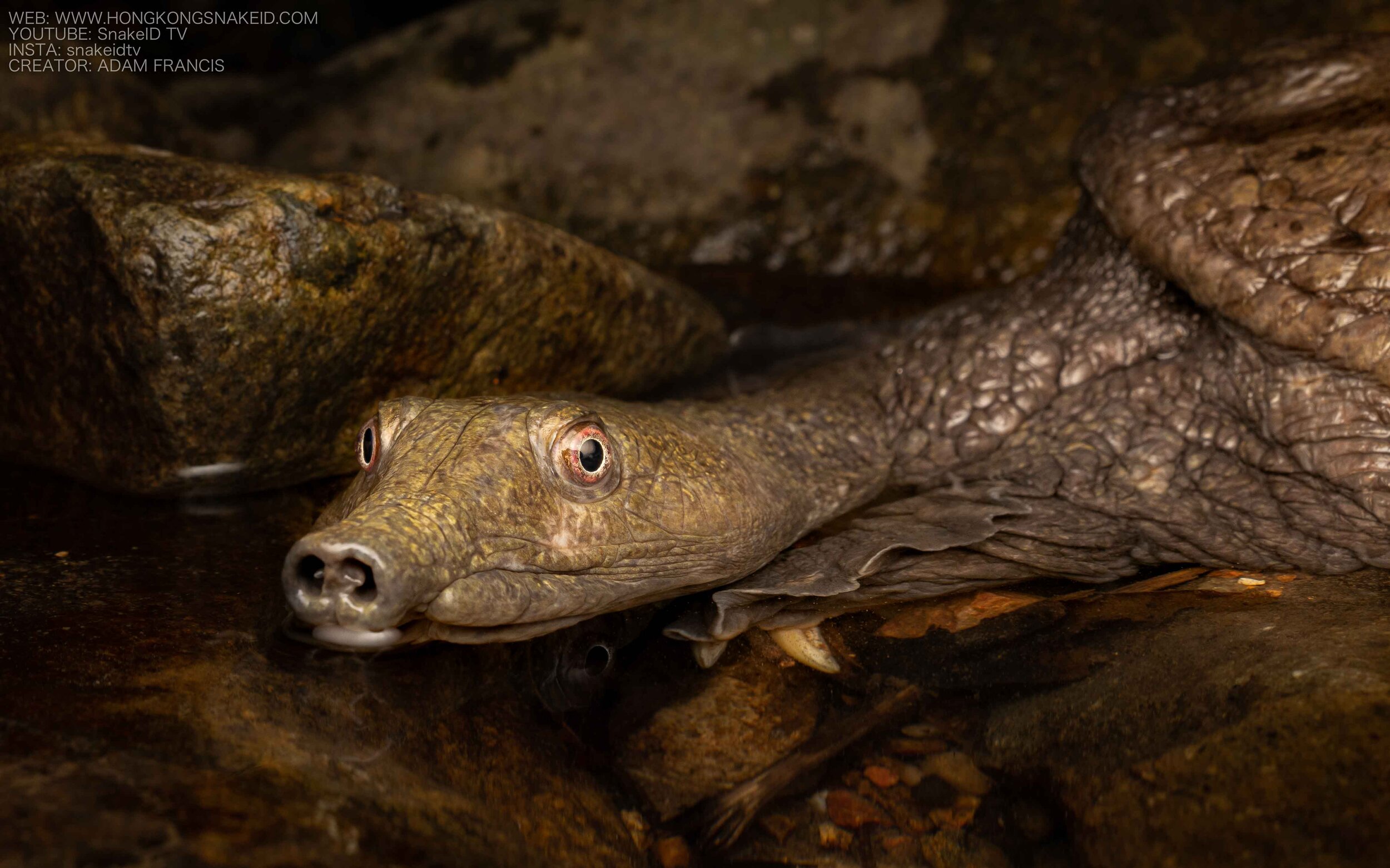
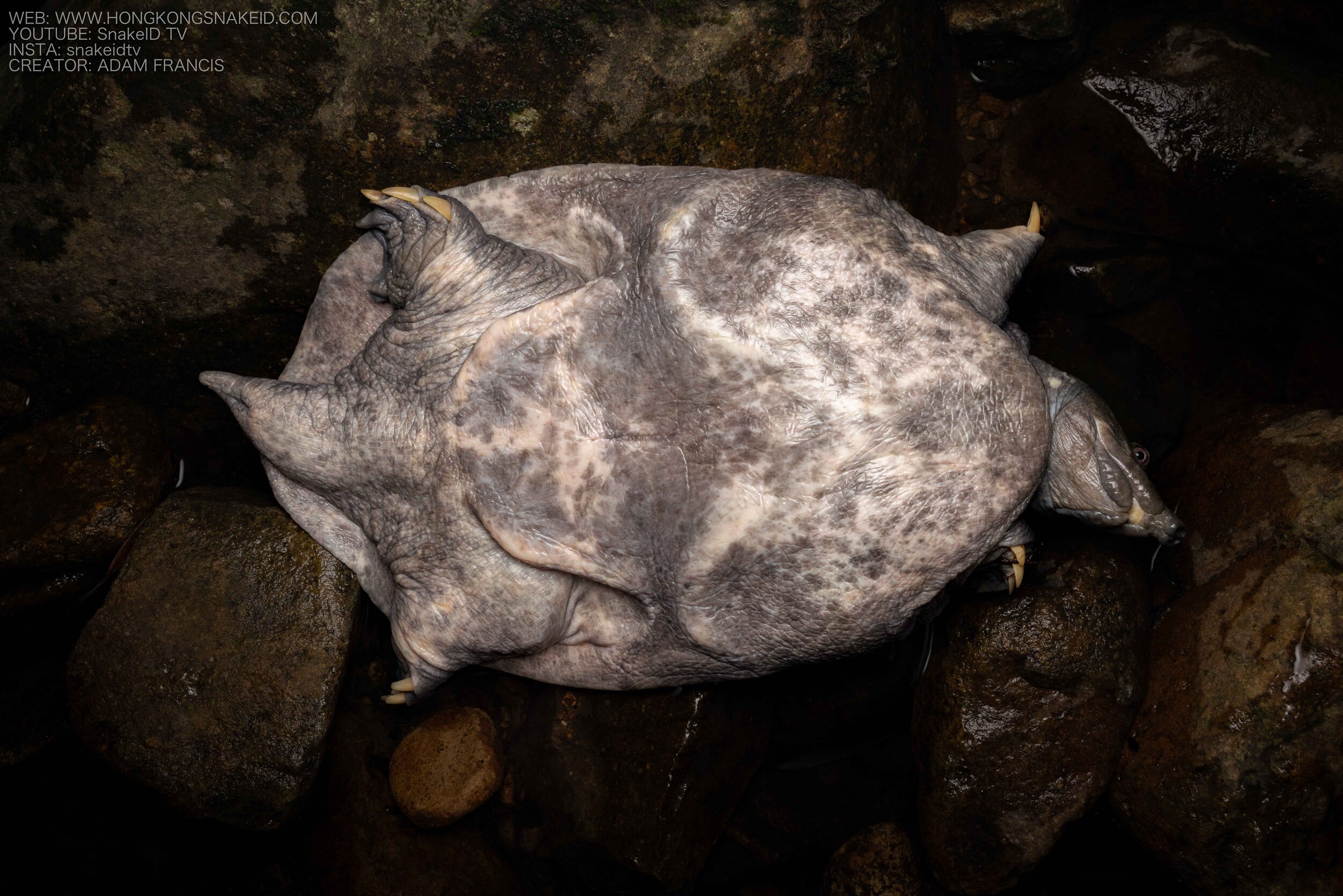
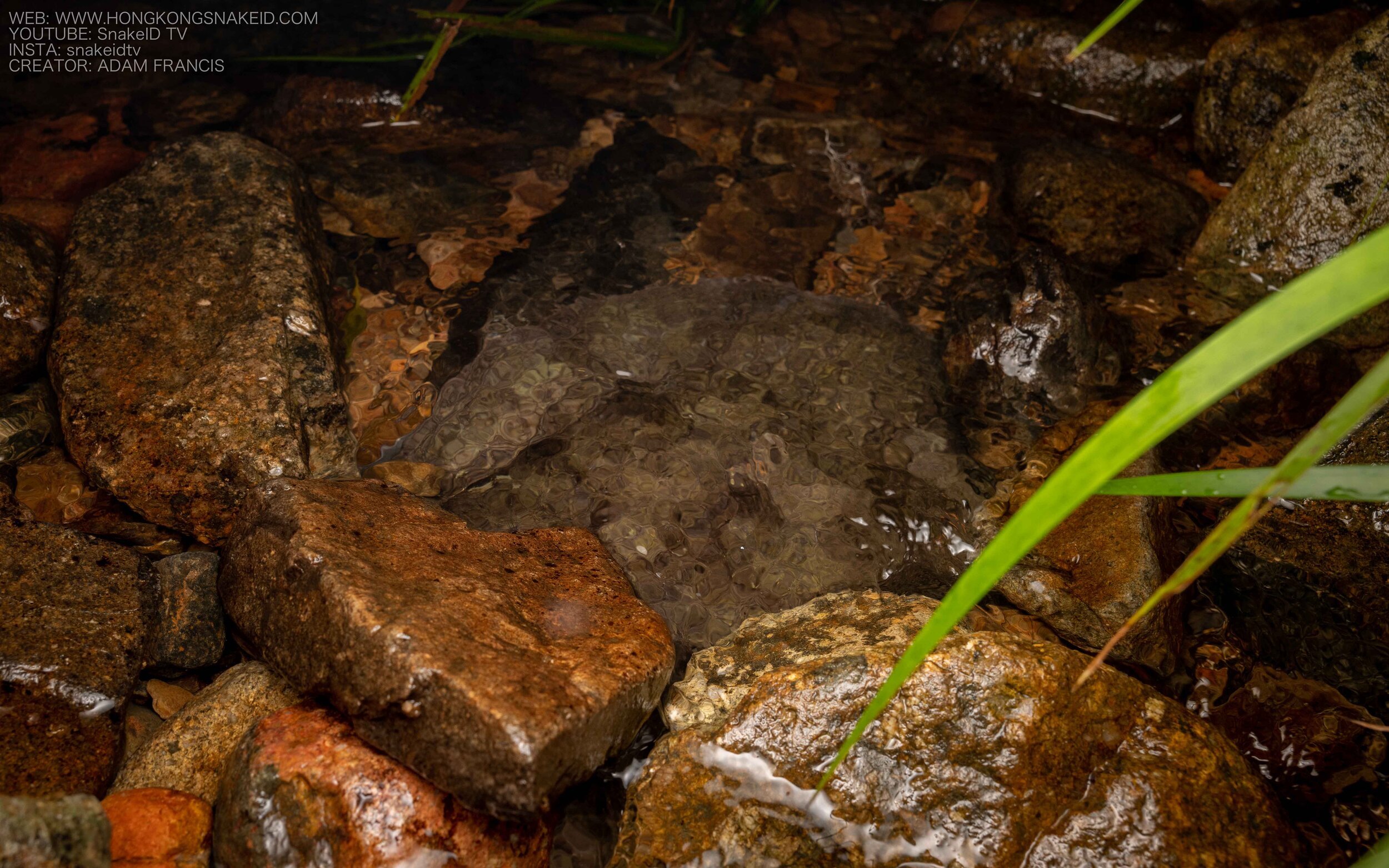
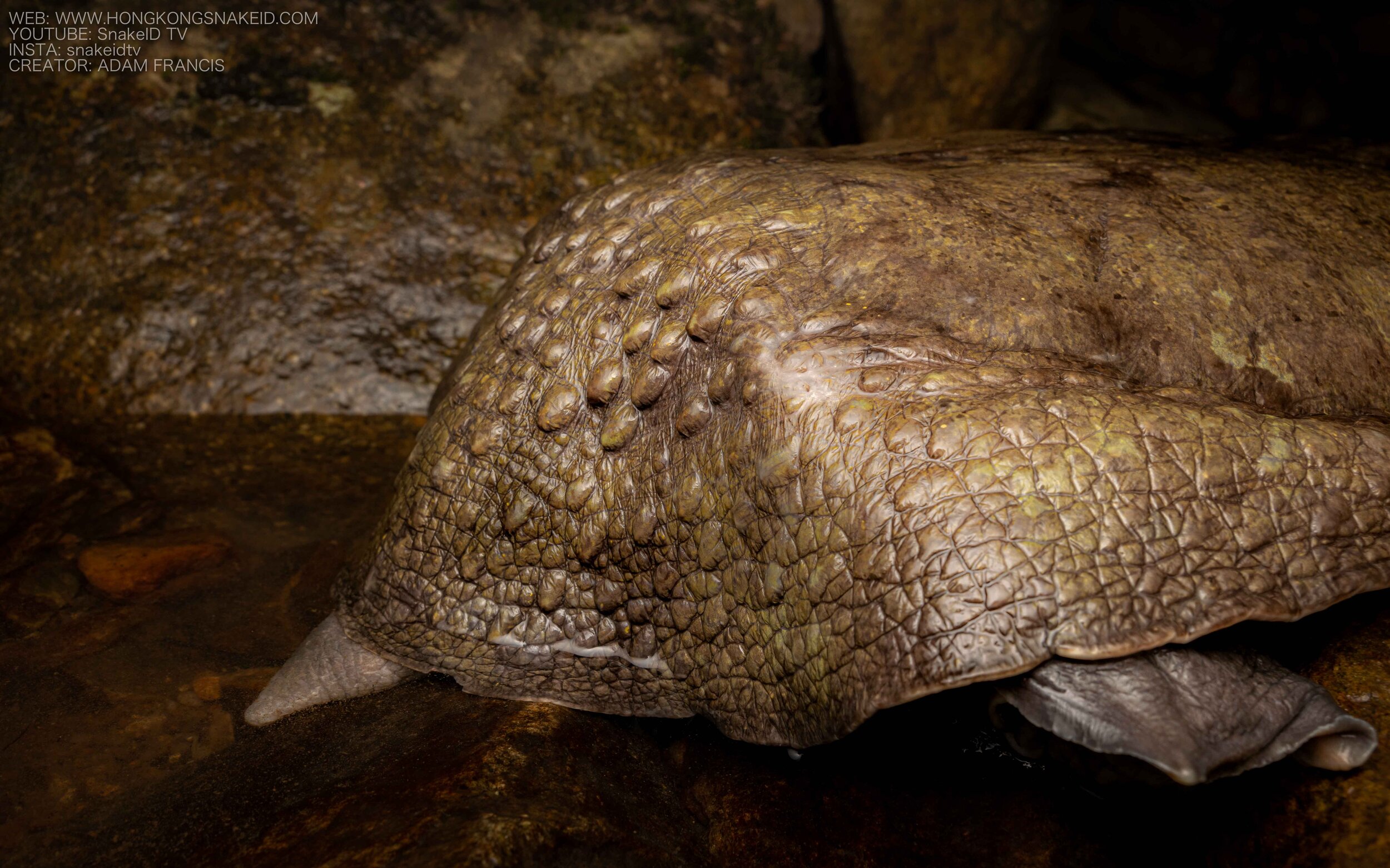
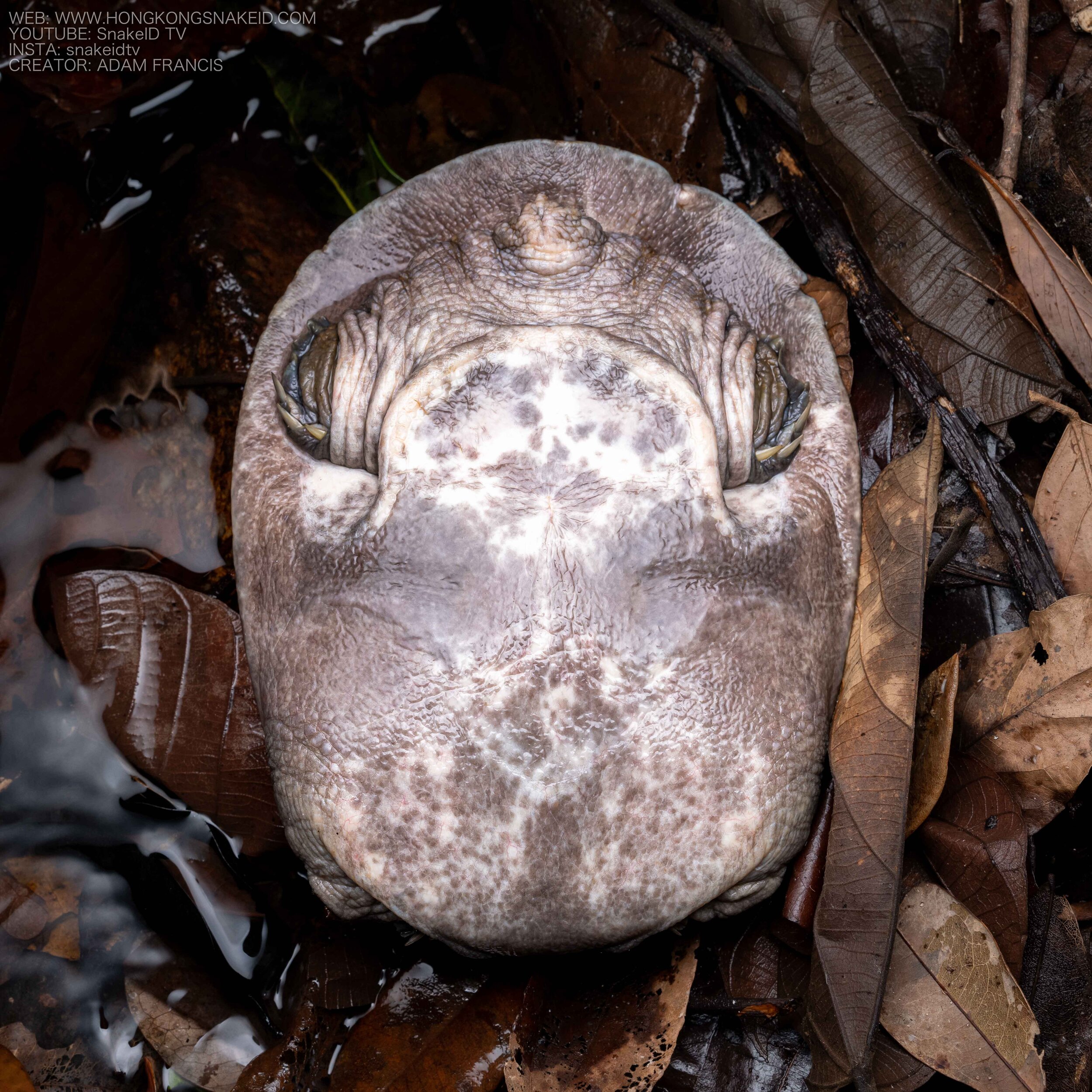
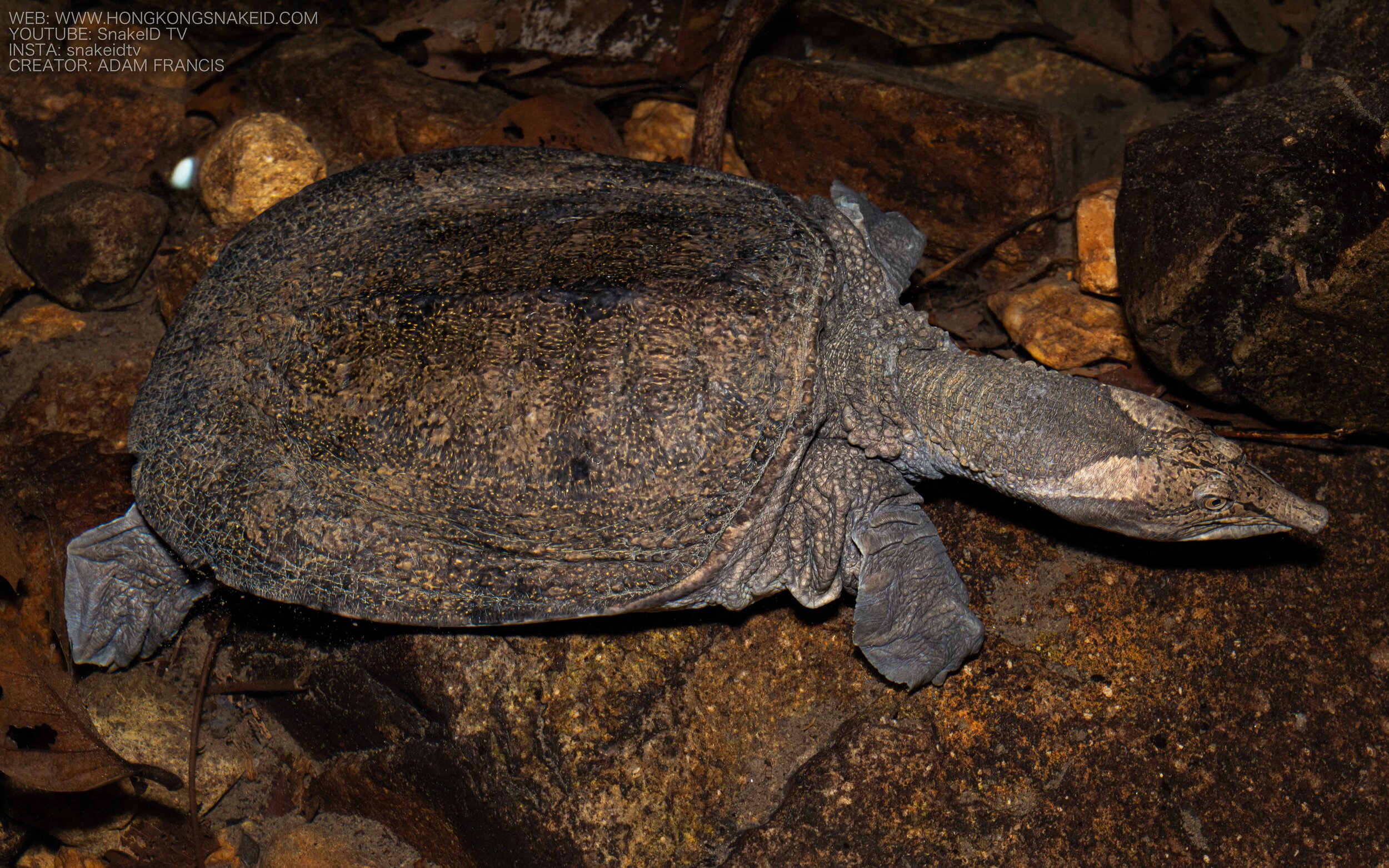
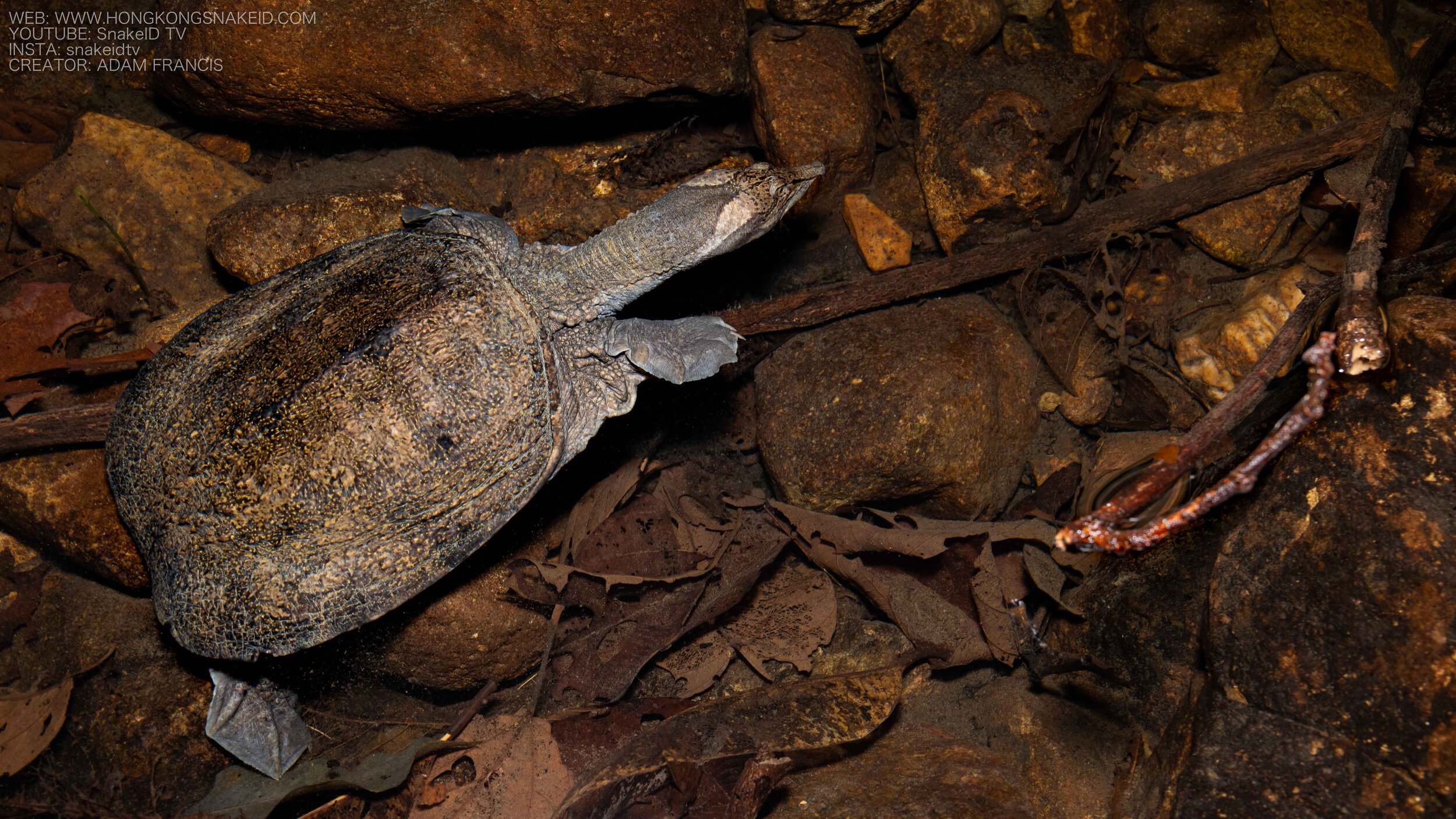
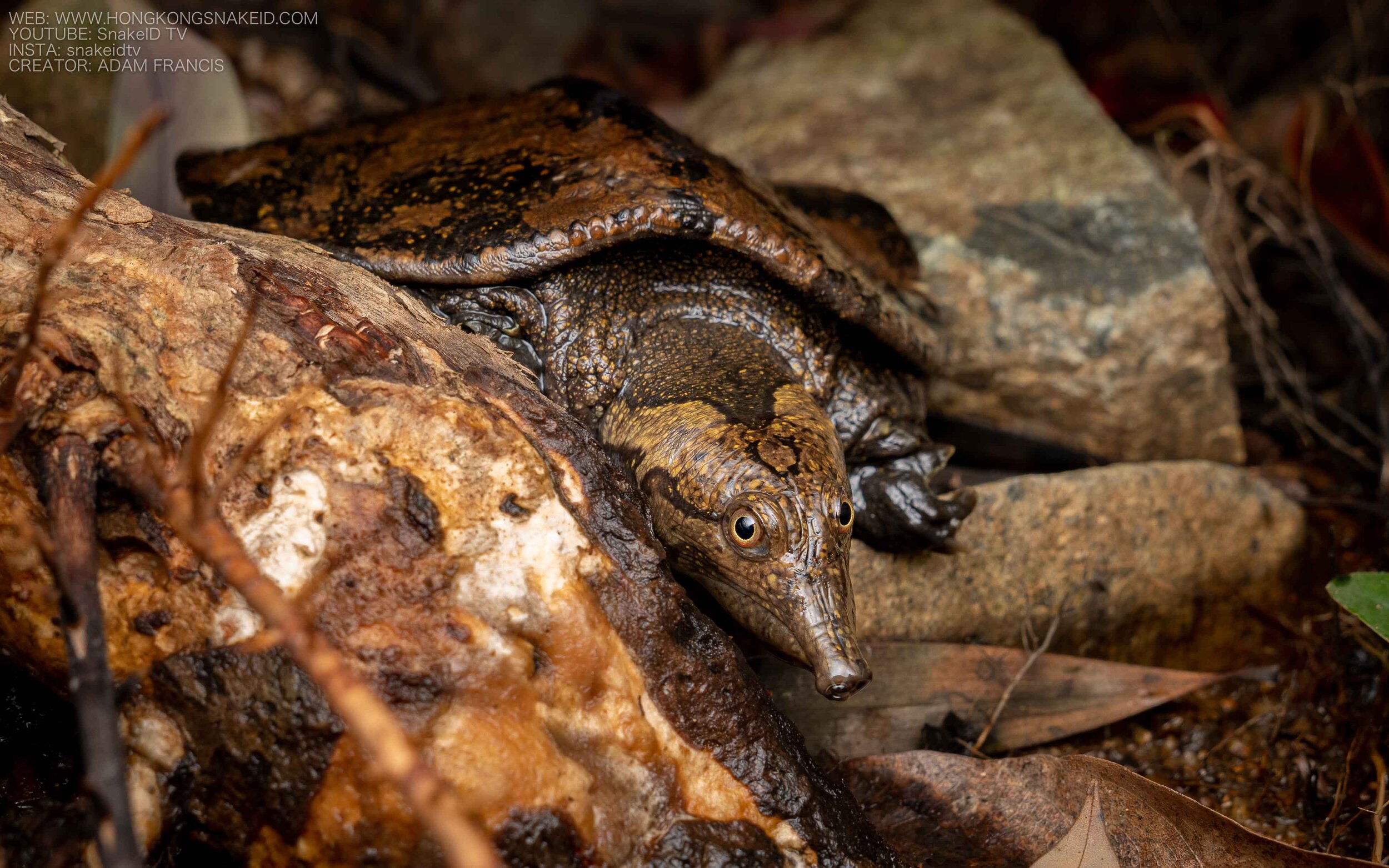
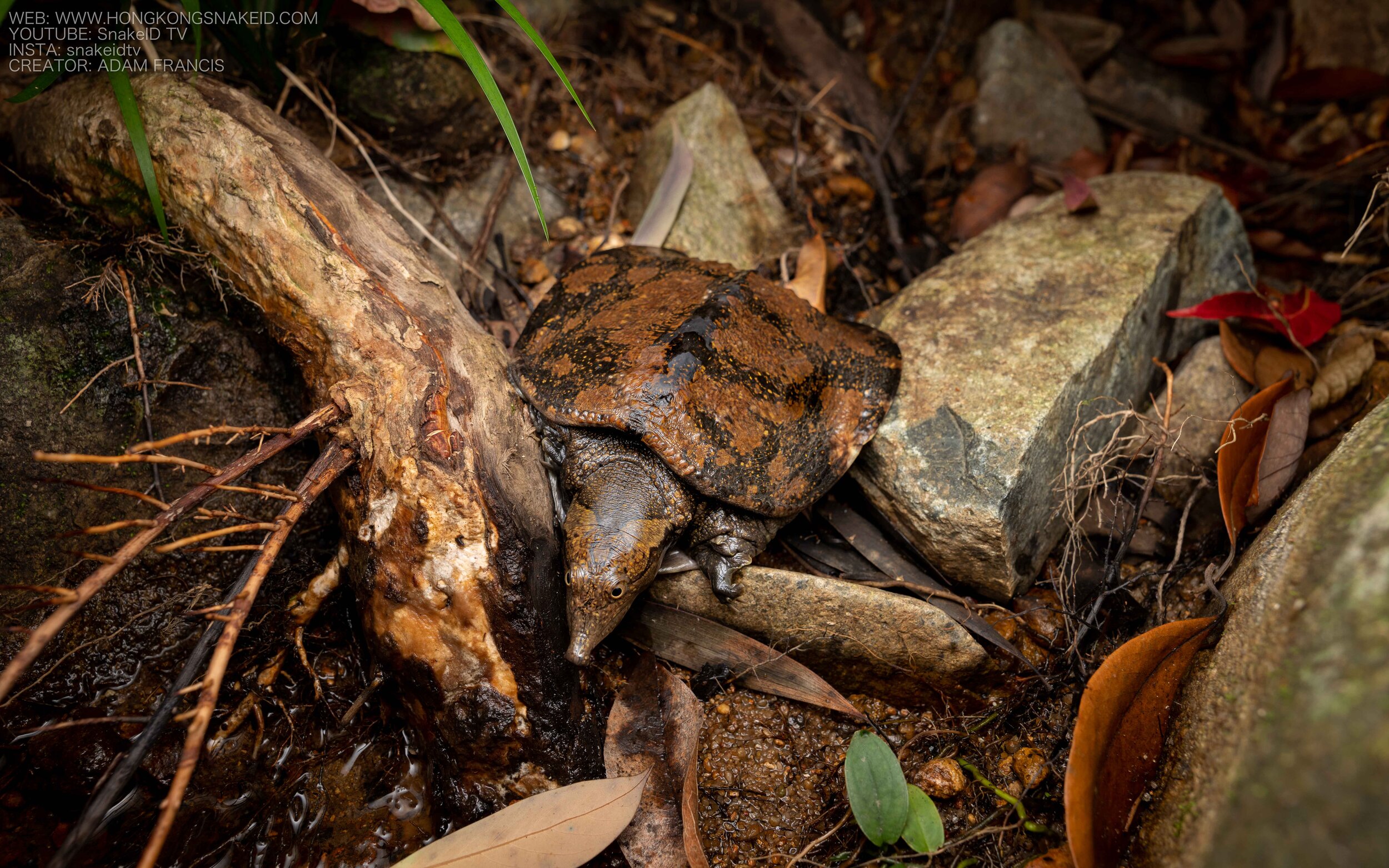
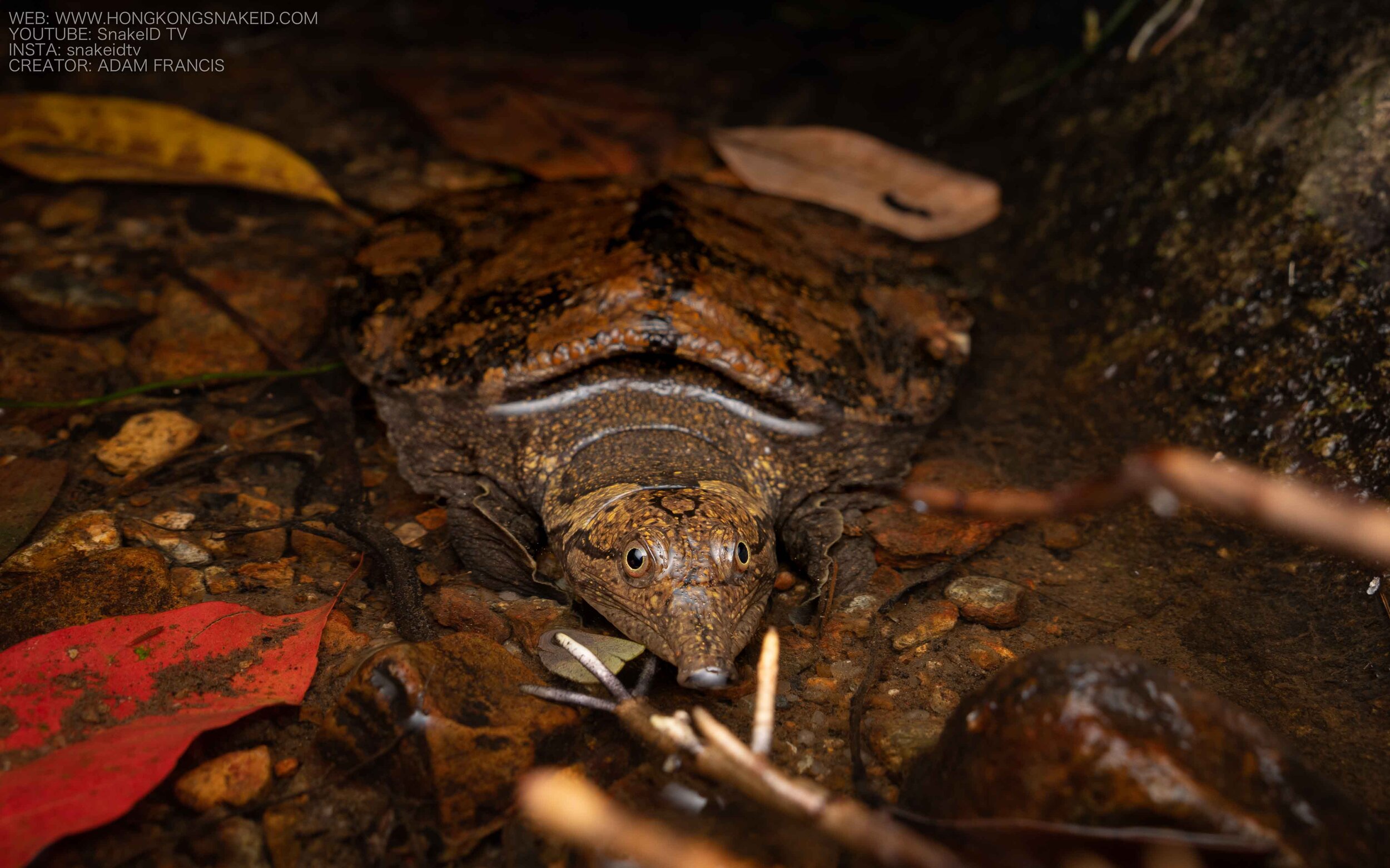
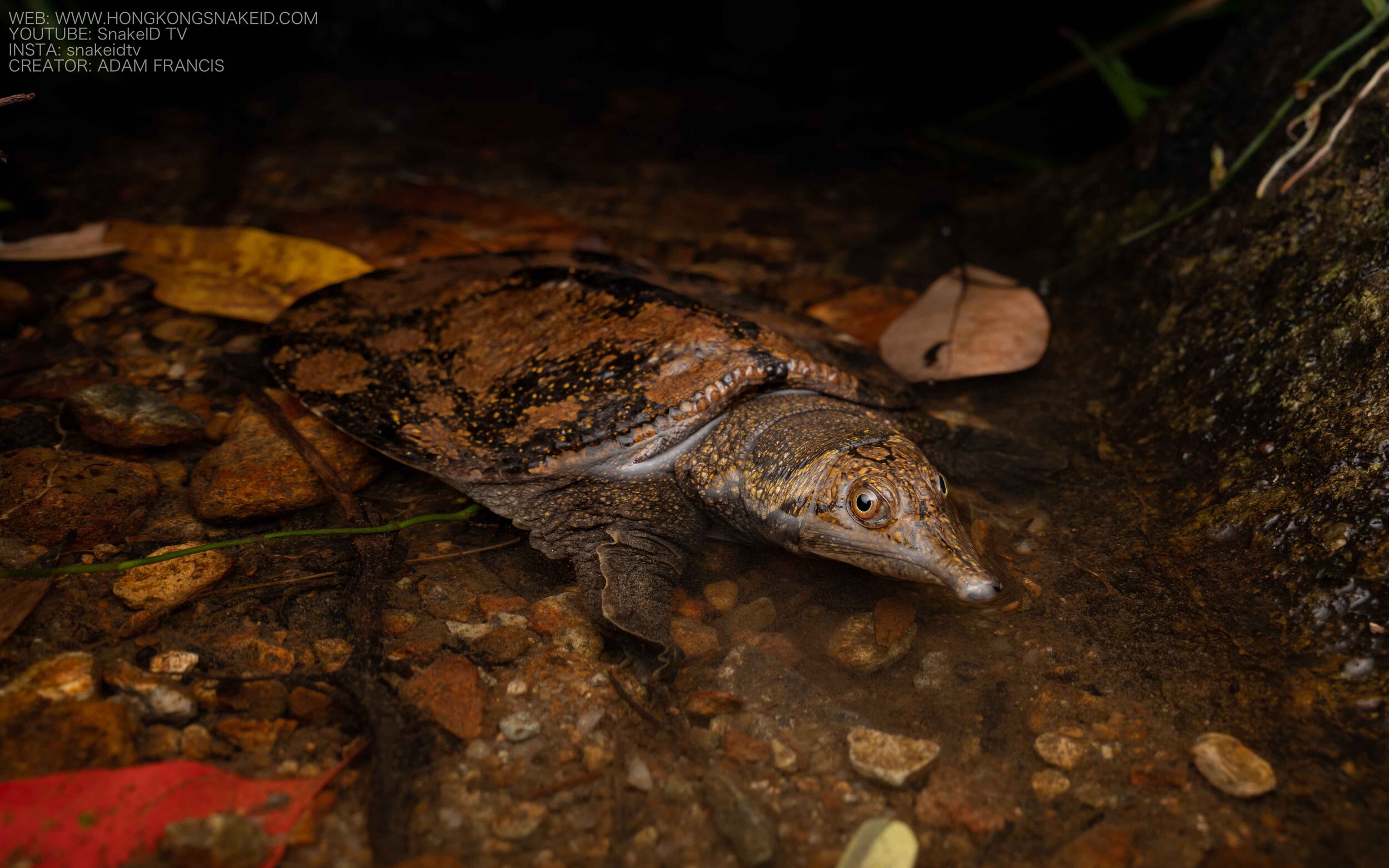
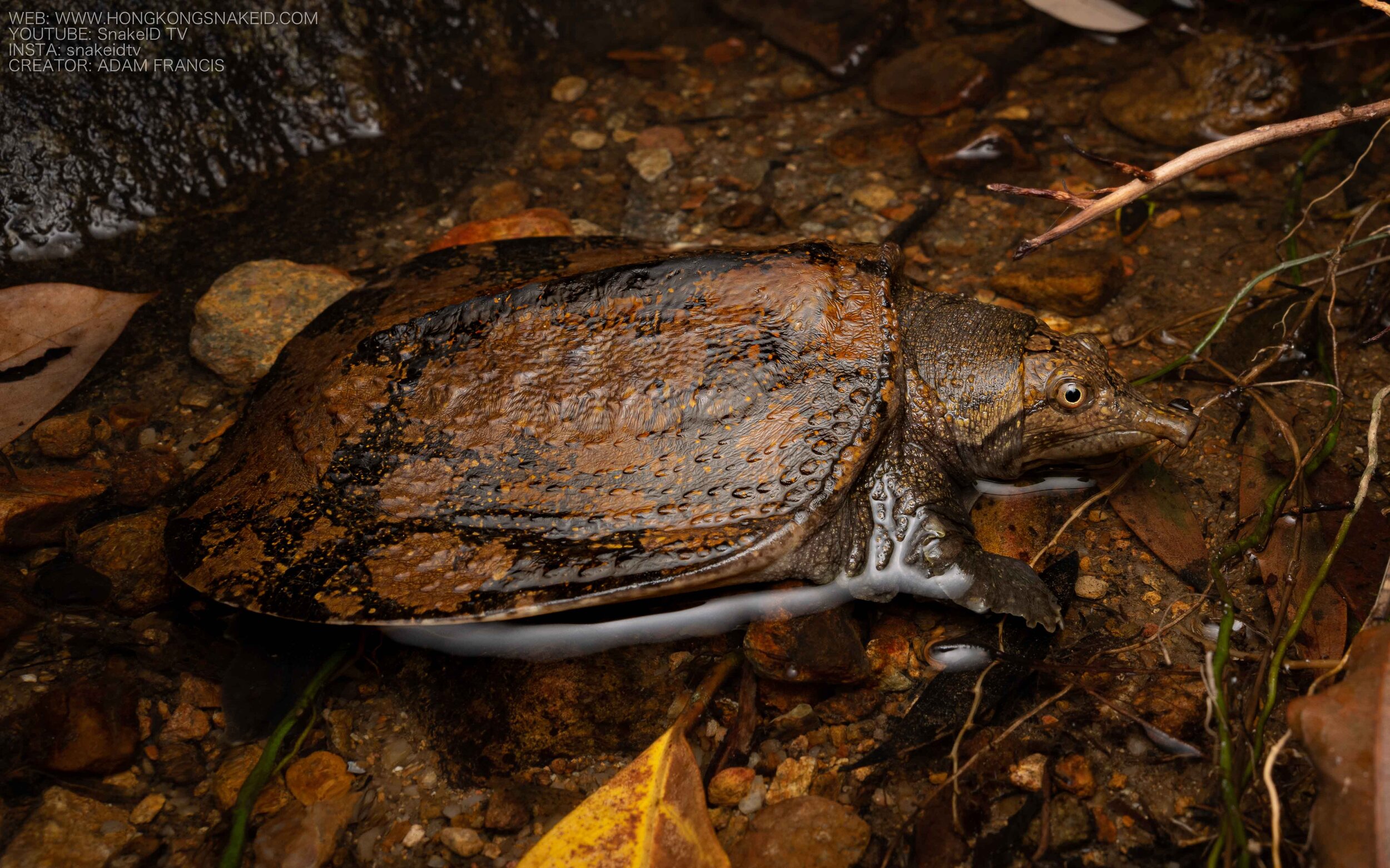
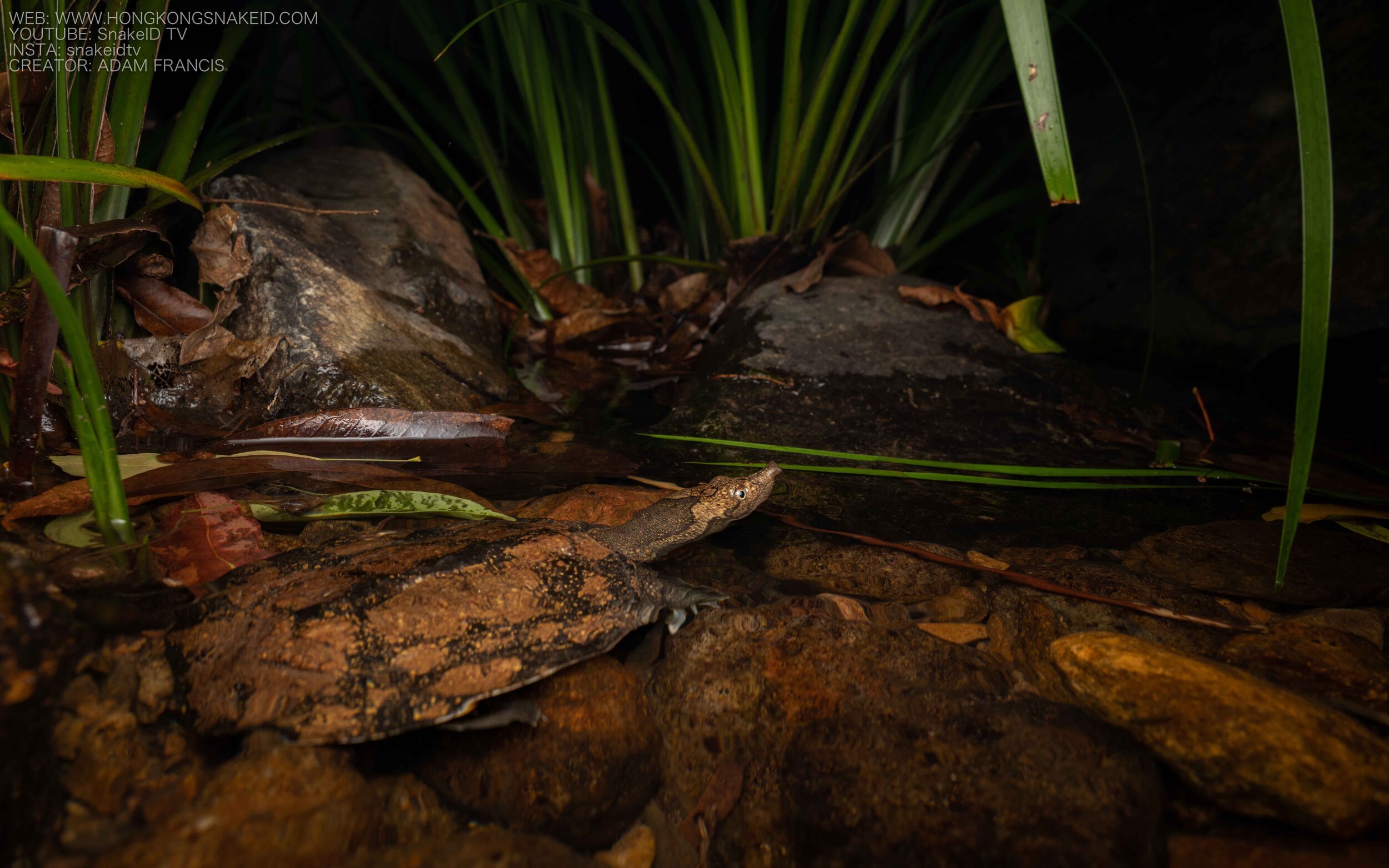
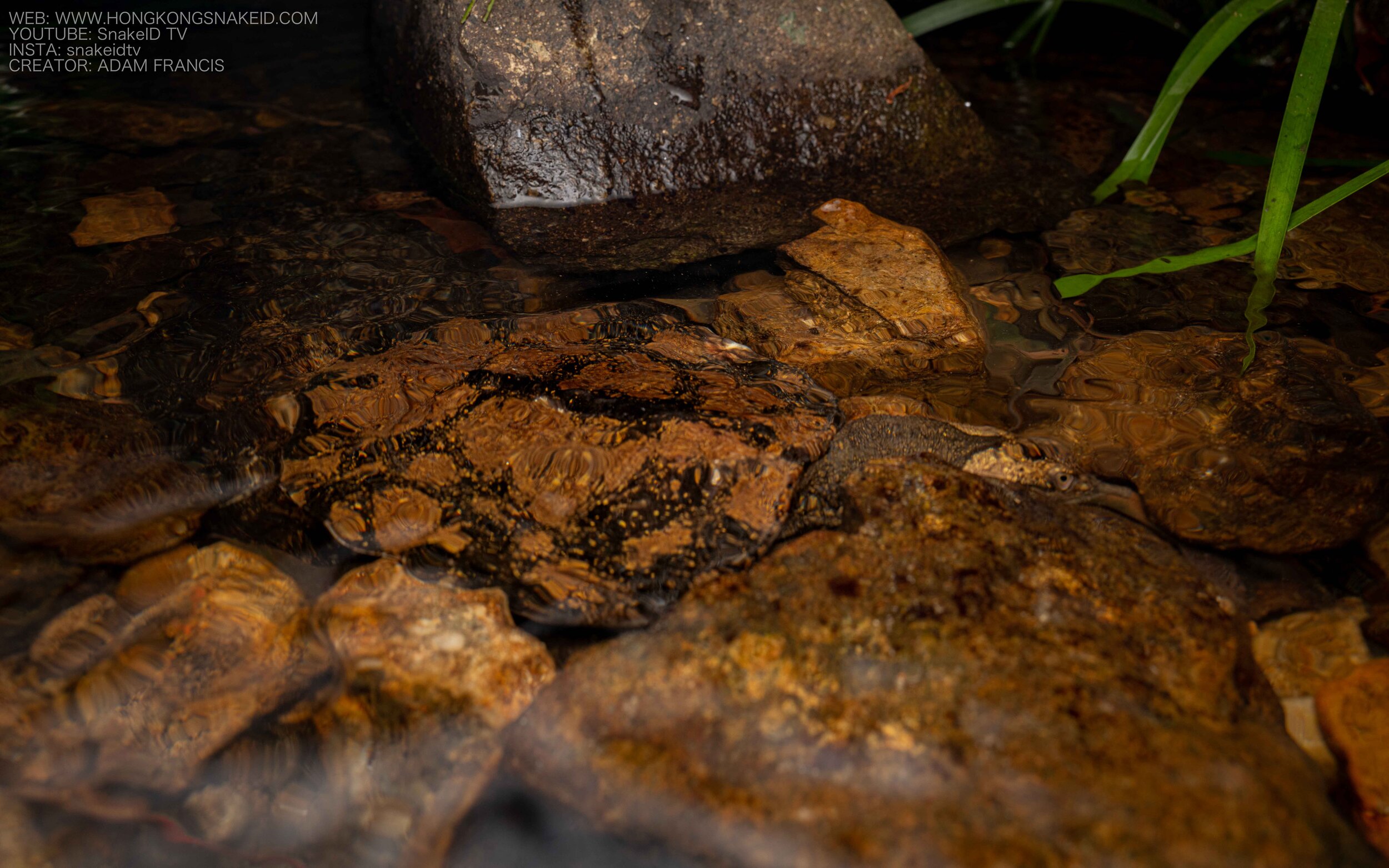
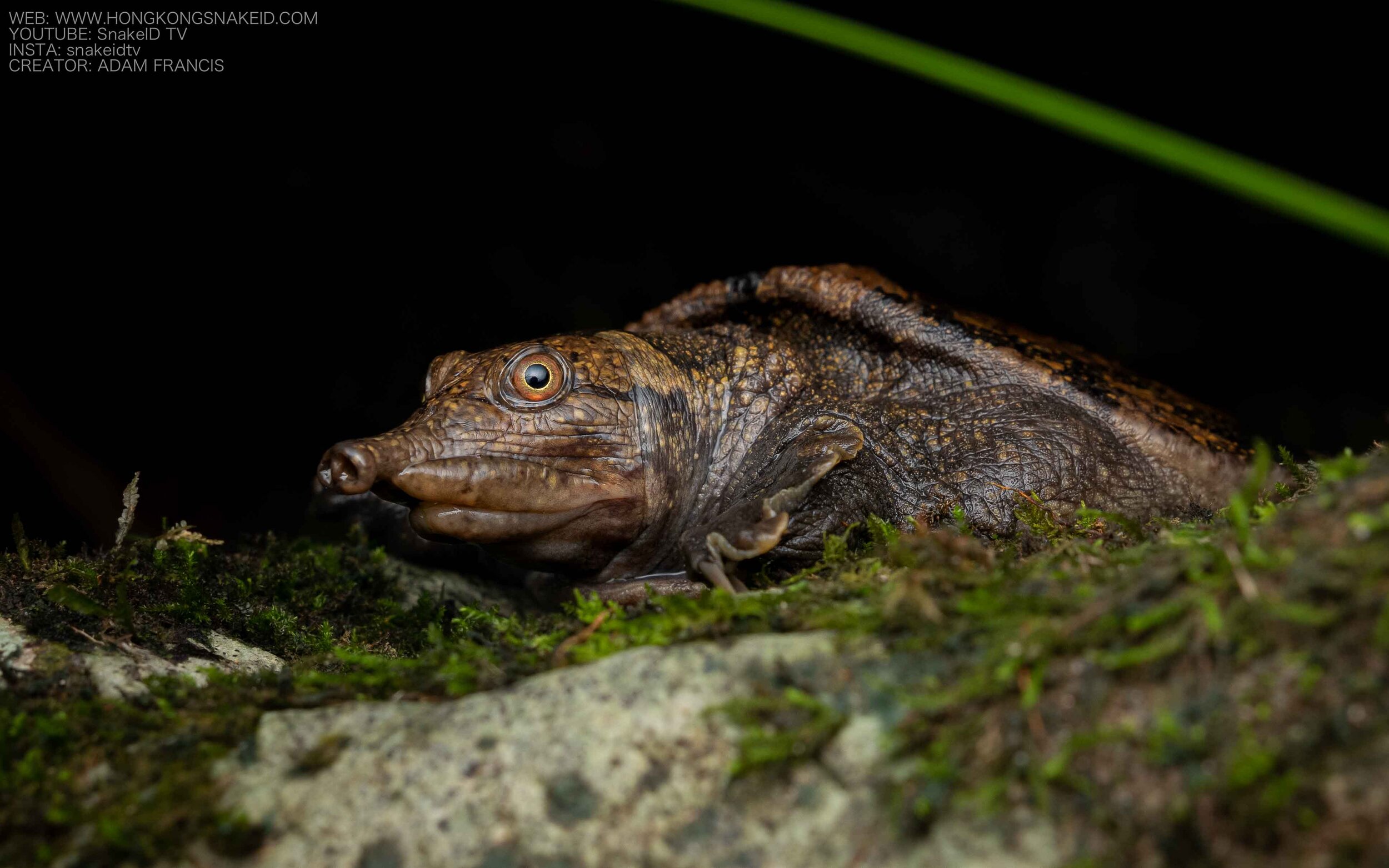
DESCRIPTION
Relatively large when mature compared to other Hong Kong species the Wattle-necked Softshell is unique looking species with is large flat leathery shell, long neck and extended nose with distinctive nodules on the rear of the shell and two knobs at the center from of the shell. Olive green to grey in color when mature and black and brown as juveniles, in both instances strongly resembling the river rocks of the streams they inhabit and functioning as an extremely effective camouflage.
BEHAVIOR
Active mostly at night when they position themselves in their rivers/streams to hunt, they can sometimes be seen on the move or sat still under the water occasionally lifting thier heads for air. They are also extremely adept burrowers and can dig themselves under large river rocks and lay burried for extended periods of time both to hunt and hide from predators. Little is known about thier daytime behavior but they have been observed occasionally at the bottom of deep pools periodically stretching thier long necks and nose to the sirface for air before immediately retracting and hiding agian.
HABITAT
A highly endangered species the Wattle-necked Softshell is found in clear flowing mountain streams at low to mid elevations. It has highly localised populations in Hong Kong making them extremely vunerable to poaching and habitat distruction.
POACHING
TURTLES ARE HEAVILY TRAFFICKED IN HONG KONG: Poachers, unfortunately are still very active in Hong Kong, regularly trapping rare turtle species to sell to the food, pet and Chinese Medicine trade. Turtles that end up sold into this trade are killed to become ingredients in traditional medicines. To avoid unintentionally aiding poachers, locations of turtles found in Hong Kong should never be shared on social media, and individuals should never be collected as pets given the potential for disruption to local breeding populations.

